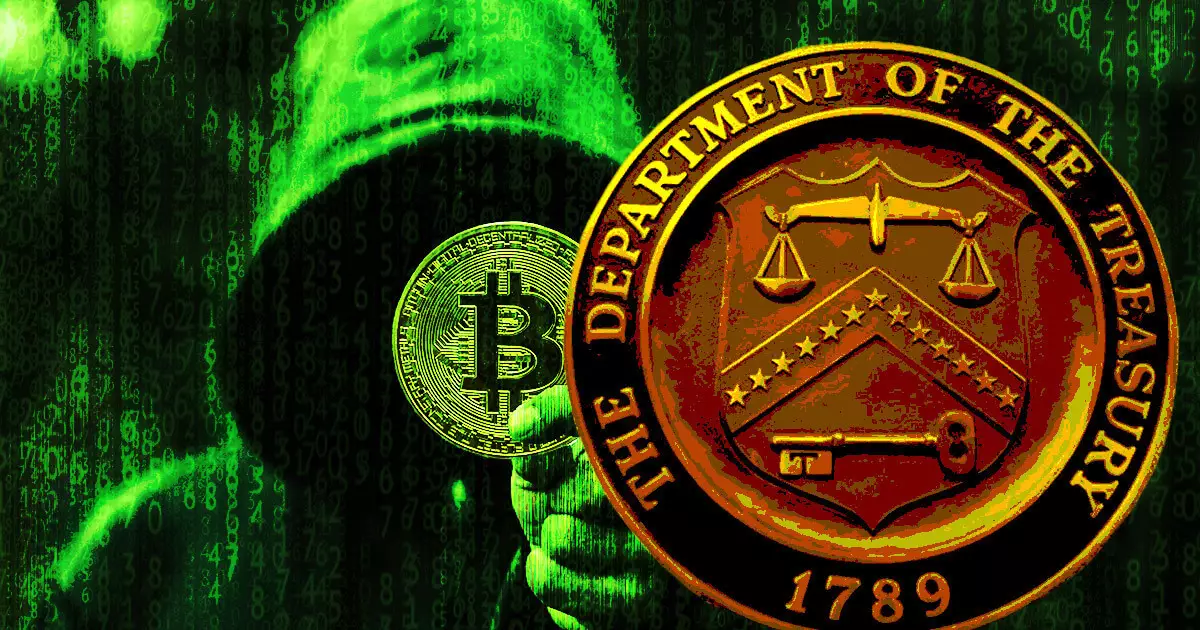The U.S. Department of the Treasury and its Office of Foreign Assets Control (OFAC) have imposed sanctions on a Russian businesswoman, Ekaterina Zhdanova, for her involvement in money laundering and illicit fund movements facilitated by virtual currencies. These sanctions shed light on the increasing use of cryptocurrencies in cross-border transactions and their potential risks in enabling illicit activities.
Money Laundering Allegations
The Treasury alleges that Ekaterina Zhdanova played a significant role in assisting Russian elites in laundering and transferring funds through various methods, including virtual currencies. The agency claims that Zhdanova conducted large cross-border transactions for one Russian oligarch, moving over $100 million to the United Arab Emirates using virtual currencies. She was also implicated in establishing a tax residency service in the United Arab Emirates for Russian clients, involving payments in both cash and virtual currencies.
Involvement with Ransomware Group Ryuk
Furthermore, the Treasury states that Zhdanova engaged in money laundering activities for an affiliate of the Russian ransomware group Ryuk, which primarily relies on cryptocurrency payments. It is alleged that she facilitated the laundering of $2.3 million, believed to originate from ransomware victims. The Treasury highlights Zhdanova’s reliance on services and platforms that lack anti-money laundering (AML) and countering the financing of terrorism (CFT) controls, including the Russian crypto exchange Garantex, which itself was designated in 2022.
In addition to virtual currencies, Zhdanova is said to have used other traditional means to move illicit funds. These methods include cash transactions, connections to fellow money launderers, and involvement with a luxury watch company. The Treasury provided an example of Zhdanova assisting a Russian client in obscuring and transferring more than $2.3 million to Western Europe through a fraudulently opened investment account and real estate purchases in March 2022.
The recent sanctions imposed on Zhdanova severely restrict financial interactions between her and both individuals and financial institutions. Additionally, the sanctions aim to block the transfer of any property held by Zhdanova within the United States and require reporting of such property to OFAC. As part of the punitive measures, three Bitcoin addresses associated with Zhdanova have been listed and subjected to restrictions. These actions demonstrate the U.S. government’s commitment to combatting money laundering and illicit activities involving virtual currencies.
Broader Context of Sanctions
The U.S. Treasury’s sanctions on Zhdanova reflect its ongoing efforts to target Russia-linked entities that engage in illicit activities. Many of these sanctions emerged following Russia’s invasion of Ukraine in 2022. Notable examples include the sanctions imposed on the Russian mining firm Bitriver and members of the Dubai-based company Huriya Private. The Treasury’s proactive stance against illicit financial behavior underscores the importance of robust AML/CFT controls and the increasing scrutiny on virtual currencies.
The sanctioning of Ekaterina Zhdanova by the U.S. Department of the Treasury and OFAC emphasizes the use of virtual currencies in money laundering and illicit fund movements. Zhdanova’s involvement in assisting Russian elites and her connections with the ransomware group Ryuk demonstrate the potential risks associated with cryptocurrencies. The broader context of the sanctions highlights the U.S. government’s commitment to combatting illicit financial activities and promoting enhanced regulatory measures. Efforts to address these challenges will require continued vigilance, cooperation between international authorities, and the development of robust AML/CFT frameworks within the cryptocurrency ecosystem.


Leave a Reply